The cost of IVF (In Vitro Fertilization) in India ranges from INR 291025 to 374175 (USD 3500 to 4500)
IVF stands for in vitro fertilization. This is a highly advanced technology that helps childless couples conceive a baby successfully. This treatment is used as a treatment for both male and female infertility. During this treatment, an egg and a sperm are made to fuse in a Petri dish under laboratory conditions. The developing zygote is transferred to the womb of the mother at 8- or 16-celled stage, where further development takes place.
In vitro fertilization in India is conducted at some of the globally renowned hospitals. Thousands of infertile couples from across the world choose India as their destination for IVF because of several reasons. First, the cost of treatment in the country and the cost of overall living are quite affordable. Secondly, the best hospitals for IVF treatment in India are equipped with the latest technology and equipment used to conduct this procedure. Moreover, this procedure is performed by a team of highly experienced and skilled IVF experts.
| City | Minimum Cost (USD) | Minimum Cost (INR) | Maximum Cost (USD) | Maximum Cost (INR) |
|---|---|---|---|---|
| Gurgaon | USD 3500 | 291025 | USD 4500 | 374175 |
| Chennai | USD 3500 | 291025 | USD 4500 | 374175 |
| Hyderabad | USD 3500 | 291025 | USD 4500 | 374175 |
| Faridabad | USD 3150 | 261923 | USD 4050 | 336758 |
| Delhi | USD 3500 | 291025 | USD 4500 | 374175 |
| Noida | USD 3500 | 291025 | USD 4500 | 374175 |
| Ahmedabad | USD 3150 | 261923 | USD 4050 | 336758 |
| Pune | USD 3150 | 261923 | USD 4050 | 336758 |
| Bangalore | USD 3500 | 291025 | USD 4500 | 374175 |
| Country | Minimum Cost | Minimum Local Currency | Maximum Cost | Maximum Local Currency |
|---|---|---|---|---|
| India | USD 3500 | INR 291025 | USD 4500 | INR 374175 |
| Thailand | USD 8000 | THB 285200 | USD 14000 | THB 499100 |
| Turkey | USD 4000 | TRY 120560 | USD 7003 | TRY 211070 |
| United Arab Emirates | USD 6000 | AED 22020 | USD 7000 | AED 25690 |
Treatment cost
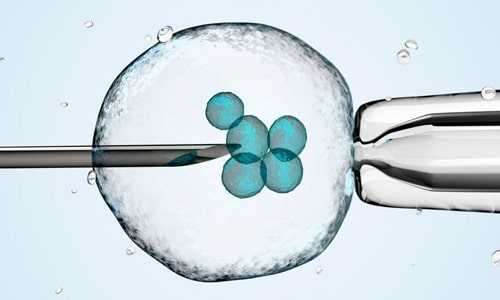
Some of the key inclusions which we provide as additional benefits of the package are:
We offer packages at reasonable pricing that include a variety of additional advantages, making it a better deal than paying for individual perks at the hospital. In Vitro means �Outside the Body�. It is a process of egg fertilization with the sperm outside the body in an embryology laboratory. The process allowed many successful pregnancies in women who were previously deemed infertile. The procedure of IVF involves removal of eggs directly from the ovary, then the eggs are fertilized with sperm in the laboratory, followed by transfer of the embryos directly into the uterus, thereby bypassing the tubes., Grab this comprehensive & discounted package on IVF at Fakih IVF Fertility Center - Dubai, United Arab Emirates.
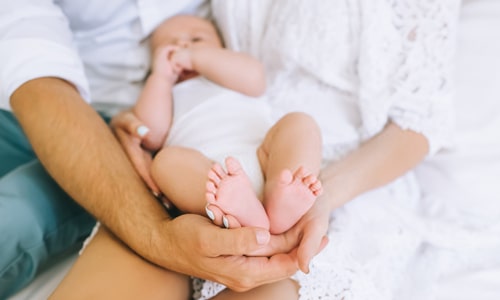
MediGence is offering immense facilities for your medical journey such as:
We offer packages at reasonable pricing that include a variety of additional advantages, making it a better deal than paying for individual perks at the hospital. In Vitro means Outside the Body. It is a process of egg fertilization with the sperm outside the body in an embryology laboratory. The process allowed many successful pregnancies in women who were previously deemed infertile. The procedure of IVF involves removal of eggs directly from the ovary, then the eggs are fertilized with sperm in the laboratory, followed by transfer of the embryos directly into the uterus, thereby bypassing the tubes., Grab this comprehensive & discounted package on IVF at Fortis Hospital, Shalimar Bagh, India.

Types of IVF (In Vitro Fertilization) in Sarvodaya Hospital and Research Centre and its associated cost
| Treatment Option | Approximate Cost Range (USD) | Approximate Cost Range (INR) |
|---|---|---|
| Overall IVF Cost | 2026 - 5065 | 165825 - 416796 |
| Conventional IVF | 2027 - 4048 | 165826 - 331968 |
| Intracytoplasmic Sperm Injection (ICSI) IVF | 3060 - 5079 | 250759 - 415446 |
DOCTORS IN 14 SPECIALITIES
FACILITIES & AMENITIES
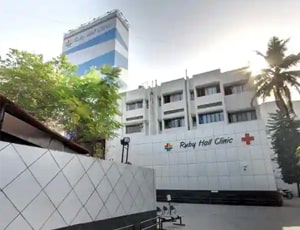
Types of IVF (In Vitro Fertilization) in Ruby Hall Clinic and its associated cost
| Treatment Option | Approximate Cost Range (USD) | Approximate Cost Range (INR) |
|---|---|---|
| Overall IVF Cost | 1846 - 4661 | 153069 - 379066 |
| Conventional IVF | 1888 - 3728 | 155243 - 310616 |
| Intracytoplasmic Sperm Injection (ICSI) IVF | 2785 - 4745 | 230202 - 386178 |
DOCTORS IN 13 SPECIALITIES
FACILITIES & AMENITIES
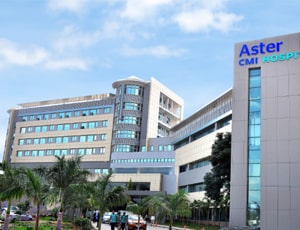
Types of IVF (In Vitro Fertilization) in Aster CMI Hospital and its associated cost
| Treatment Option | Approximate Cost Range (USD) | Approximate Cost Range (INR) |
|---|---|---|
| Overall IVF Cost | 2026 - 5096 | 167082 - 416786 |
| Conventional IVF | 2038 - 4076 | 165948 - 333864 |
| Intracytoplasmic Sperm Injection (ICSI) IVF | 3051 - 5059 | 249902 - 417632 |
DOCTORS IN 13 SPECIALITIES
FACILITIES & AMENITIES

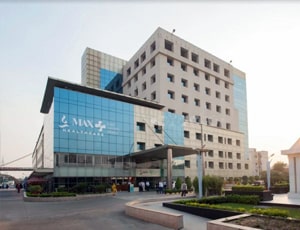
The cost for IVF (In Vitro Fertilization) ranges from USD 5230 - 5470 in Max Super Specialty Hospital, Vaishali
Max Super Specialty Hospital, Vaishali located in Ghaziabad, India is accredited by NABH, NABL. Also listed below are some of the most prominent infrastructural details:
DOCTORS IN 14 SPECIALITIES
FACILITIES & AMENITIES
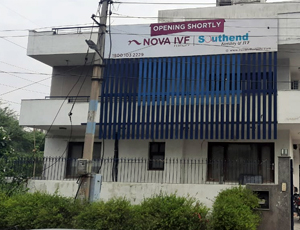
Types of IVF (In Vitro Fertilization) in Nova Fertility Centre, New Delhi and its associated cost
| Treatment Option | Approximate Cost Range (USD) | Approximate Cost Range (INR) |
|---|---|---|
| Overall IVF Cost | 2034 - 5057 | 165755 - 415674 |
| Conventional IVF | 2035 - 4071 | 165690 - 334091 |
| Intracytoplasmic Sperm Injection (ICSI) IVF | 3047 - 5095 | 250676 - 414537 |
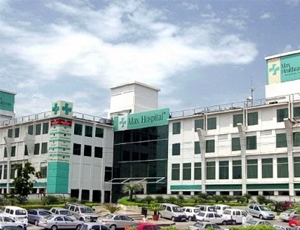
Max Hospital (Gurgaon branch), one of the top medical facilities in India, was established in 2007. Max Gurgaon Hospital is the first multi, super specialty tertiary care in the Location. Out of many other awards, the hospital also possesses the Express Healthcare Awards for Excellence in Healthcare. It is also certified to ISO 9001:2000 standards. The Institute of Minimal Access, Metabolic & Bariatric Surgery at Max Gurgaon has been designated as a Center of Excellence for providing cutting-edge Clinical Services and Surgical Training Programs for Abdominal Wall Hernia Surgery.
Over 5 lakh patients have been treated at the 92-bed Max Hospital Gurugram, which holds expertise in 35 specialized fields such as Cardiac Sciences, Minimal Access, Laparoscopic Surgery, Neurosciences, Urology, Orthopaedics, Aesthetics, Reconstructive Surgery, and Nephrology. The laboratories at Max Healthcare hospitals are accredited by NABH and NABL. It also provides hemodialysis for patients who have end-stage kidney disease and requires renal replacement therapy. Team of doctors and nurses at the hospital provides integrated medical care in a multi-disciplinary setting. As a result, it has received multiple awards and accreditations.
International patients have been treated impeccably here as all the nursing staff, shift doctors, and treating doctors are quite courteous and supportive towards the patients. There is no doubt that being in the hospital can make you feel at home.
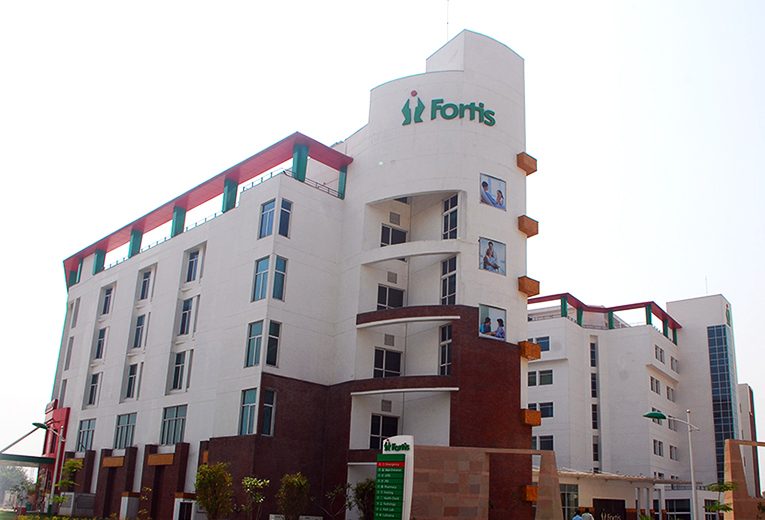
The cost for IVF (In Vitro Fertilization) ranges from USD 5350 - 6140 in Fortis Hospital, Shalimar Bagh
Fortis Hospital, Shalimar Bagh is a super-speciality hospital which occupies a unique place when it comes to providing world class patient care. The hospital is equipped with 262 beds and is expanded over a total area of 7.34 acres. It provides the highest quality of medical care via its team of doctors, technicians, nurses, and management professionals.
Infrastructure & facilities:
DOCTORS IN 14 SPECIALITIES
FACILITIES & AMENITIES
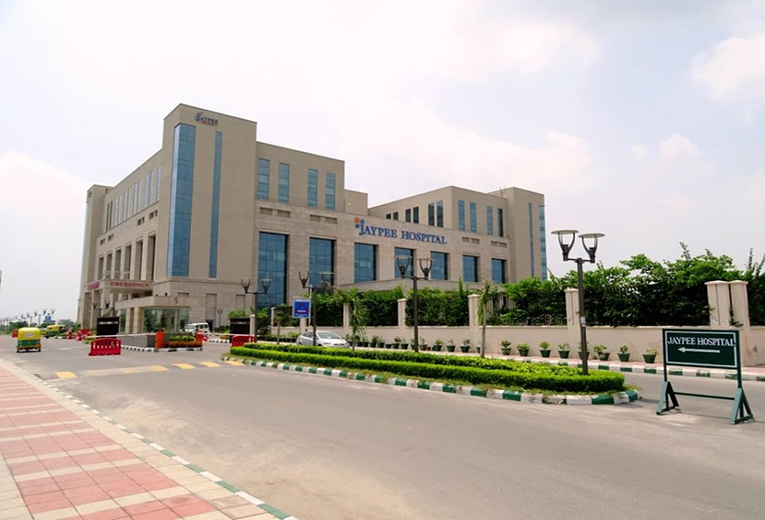
The cost for IVF (In Vitro Fertilization) ranges from USD 4580 - 4660 in Jaypee Hospital
Jaypee Hospital located in Noida, India is accredited by ISO, NABH, NABL. Also listed below are some of the most prominent infrastructural details:
DOCTORS IN 14 SPECIALITIES
FACILITIES & AMENITIES
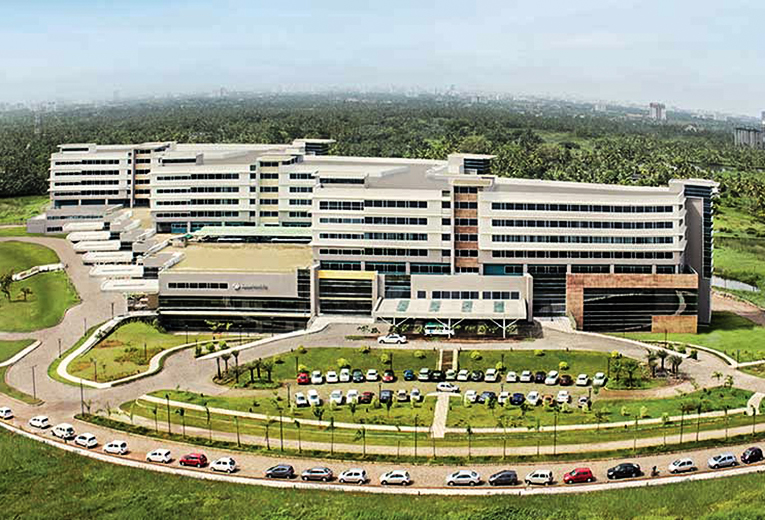
Types of IVF (In Vitro Fertilization) in Aster Medcity and its associated cost
| Treatment Option | Approximate Cost Range (USD) | Approximate Cost Range (INR) |
|---|---|---|
| Overall IVF Cost | 2038 - 5057 | 167014 - 417252 |
| Conventional IVF | 2025 - 4079 | 166014 - 334442 |
| Intracytoplasmic Sperm Injection (ICSI) IVF | 3039 - 5071 | 250841 - 414907 |
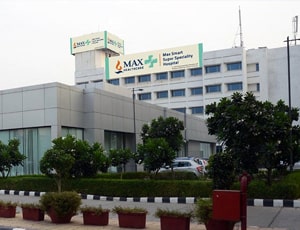
Types of IVF (In Vitro Fertilization) in Max Smart Super Speciality Hospital and its associated cost
| Treatment Option | Approximate Cost Range (USD) | Approximate Cost Range (INR) |
|---|---|---|
| Overall IVF Cost | 2035 - 5092 | 166338 - 417369 |
| Conventional IVF | 2033 - 4074 | 166752 - 333201 |
| Intracytoplasmic Sperm Injection (ICSI) IVF | 3050 - 5097 | 249137 - 417568 |
DOCTORS IN 12 SPECIALITIES
FACILITIES & AMENITIES
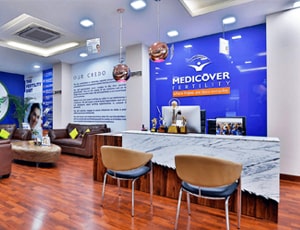
Types of IVF (In Vitro Fertilization) in Medicover Fertility and its associated cost
| Treatment Option | Approximate Cost Range (USD) | Approximate Cost Range (INR) |
|---|---|---|
| Overall IVF Cost | 1883 - 4669 | 155670 - 387520 |
| Conventional IVF | 1842 - 3749 | 155350 - 307740 |
| Intracytoplasmic Sperm Injection (ICSI) IVF | 2785 - 4719 | 232202 - 382991 |
DOCTORS IN 3 SPECIALITIES
FACILITIES & AMENITIES
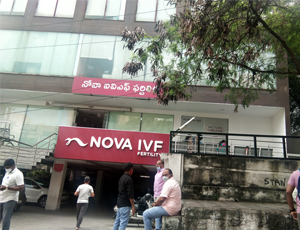
Types of IVF (In Vitro Fertilization) in Nova Fertility Centre, Hyderabad and its associated cost
| Treatment Option | Approximate Cost Range (USD) | Approximate Cost Range (INR) |
|---|---|---|
| Overall IVF Cost | 2026 - 5058 | 166801 - 414653 |
| Conventional IVF | 2029 - 4061 | 166385 - 331582 |
| Intracytoplasmic Sperm Injection (ICSI) IVF | 3051 - 5098 | 248844 - 414233 |
Types of IVF (In Vitro Fertilization) in Max Super Specialty Hospital, Shalimar Bagh and its associated cost
| Treatment Option | Approximate Cost Range (USD) | Approximate Cost Range (INR) |
|---|---|---|
| Overall IVF Cost | 2038 - 5070 | 165779 - 416860 |
| Conventional IVF | 2038 - 4070 | 165810 - 333961 |
| Intracytoplasmic Sperm Injection (ICSI) IVF | 3054 - 5066 | 250303 - 417209 |
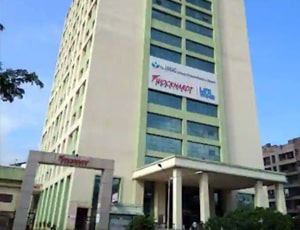
Types of IVF (In Vitro Fertilization) in Wockhardt Hospital, Umrao and its associated cost
| Treatment Option | Approximate Cost Range (USD) | Approximate Cost Range (INR) |
|---|---|---|
| Overall IVF Cost | 2021 - 5095 | 166623 - 416858 |
| Conventional IVF | 2026 - 4049 | 166570 - 333214 |
| Intracytoplasmic Sperm Injection (ICSI) IVF | 3048 - 5080 | 248614 - 416276 |
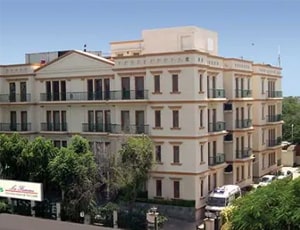
Types of IVF (In Vitro Fertilization) in Fortis La Femme, Greater Kailash II and its associated cost
| Treatment Option | Approximate Cost Range (USD) | Approximate Cost Range (INR) |
|---|---|---|
| Overall IVF Cost | 2035 - 5067 | 166697 - 415341 |
| Conventional IVF | 2023 - 4068 | 167077 - 334244 |
| Intracytoplasmic Sperm Injection (ICSI) IVF | 3036 - 5071 | 248644 - 416319 |
DOCTORS IN 7 SPECIALITIES
FACILITIES & AMENITIES
The natural process of fertilization involves the conjugation of an egg and sperm inside the woman’s body. In-vitro-fertilization (IVF) is the procedure that involves the conception of an egg outside the body in a laboratory. IVF comes under assisted reproductive technology (ART) that involves the use of advanced medical technology to help with pregnancy in the woman.
The different types of treatments available for IVF are:
Assisted hatching is a technique used in IVF where a gap or a hole is created on the outer shell of the embryo called zona pellucida before transferring the embryo into the mother’s womb. Before the implantation of the embryo, the developing embryo should “hatch” out of its outer shell (zona pellucida).
Sometimes the embryo is thick, which decreases its ability to hatch on its own. Making a hole or thinning the outer layer may help the embryos to hatch, which increases the chances of pregnancy. Pregnancy cannot occur unless the embryo hatches. Thus, assisted hatching IVF success rates are higher than simple IVF success rates.
Because of the use of additional technology, IVF with laser assisted hatching cost is higher than just IVF cost.
IVF with laser assisted hatching is recommended when:
It is performed by using
It is performed before transferring the embryo into the mother’s womb on day 3, 5, or 6 after fertilization. An opening in the zona pellucida is created by drilling it with acidified tyrode’s solution.
The embryo is held firmly using holding pipette and a microneedle is applied
The acid is expelled over a small area of zona pellucida until it is breached. Suction is applied immediately after the breach of zona pellucida to prevent excess
This procedure Is exactly the same as the usual IVF procedure with a difference that the egg used for fertilization comes from a different candidate than the one undergoing IVF. This procedure involves a process known as female egg donation in which a suitable candidate donates an egg for successful fertilization with the retrieved sperms.
The egg donation procedure is similar to how the eggs are retrieved from the womb of the future mother. The only difference is that during
IVF with egg donation is mostly performed in the case of women who have
Intracytoplasmatic sperm injection (ICSI) is an IVF variation in which the sperm is directly injected into the egg for fertilization. The resulting fertilized egg is placed in
ICSI procedure does not require the sperm to penetrate the layers of the egg. It is highly useful to treat infertility problems in couples who suffer because the male partner’s sperms are either not able to get into the egg or are unable to fertilize the egg even when they are able to get through it.
During IVF with ICSI procedure, the eggs are extracted and held in one place with the help of a glass tool. A single sperm is injected into each egg using a small glass tube. The eggs are cultured and checked for fertilization overnight. The fully fertilized eggs are selected. A few fertilized eggs selected are placed in the uterus with the help of a catheter. The leftover embryos are preserved for future use.
While in simple IVF, the eggs and sperms are mixed together and allowed to fertilize naturally, in ICSI, a sperm is forced into the sperm for fertilization.
ICSI success rates largely
IVF with ICSI is also performed when the sperms come from a suitable donor and not from the male partner of the female undergoing IVF procedure. ICSI IVF treatment is the same when conducted with donor sperms as it is with sperms that come from the male partner.
ICSI treatment involves the injection of a single sperm directly into the egg from the female partner or a donor. In the case of ICSI with donor sperms, a semen sample from a suitable donor is retrieved. The sperm sample is processed and viable and good quality sperms are extracted from for further procedure.
Next, the entire ICSI procedure is conducted in a similar manner. ICSI success rates are the same whether the sperm comes from a donor or the actual male partner. ICSI treatment cost is separate from the cost of IVF.
Optical spindle view is a specialized technique used at the time of IVF and ICSI. This technique helps the fertility specialists view the division of cells carefully to ensure that the entire process goes on smoothly.
The optical spindle view technique is used after the fusion of the eggs and the sperms
Sometimes during IVF and ICSI, the fertility specialist may order a testicular biopsy to assess testicular function in the male partner before using his sperms. During
Step 1: Over-stimulation of ovulation
Stimulation of the ovaries occurs with the administration of fertility drugs. The natural process involves the production of one egg per month, but the fertility drugs hyperstimulate the ovaries to produce more number of drugs.
Step 2: Retrieval of eggs
Removal of the eggs from the woman’s body is done through a minor surgery called follicular aspiration surgery. Pain medications are given to the woman and with the help of ultrasound, a thin needle attached to the suction pump is inserted into the vagina. The needle is directed towards the follicles containing eggs and suctions the fluid and the eggs.
Step 3: Insemination
The inactive cells from the semen are removed. The ovum and the sperms are incubated in the ratio of 1:75,000.
Step 4: Fertilization
The sperm enters the egg and fertilization takes place. If the sperm is found to be weak, then Intra-cytoplasmic sperm injection (ICSI) is performed which involves direct injection of sperm into the ovum.
Step 6: Culture of the embryo
After fertilization, the egg divides forming an embryo. The embryo rapidly divides within five days after fertilization.
Genetic diagnosis is performed after 3-4 days of fertilization to rule out the genetic disorders.
Step7: Transfer of the embryo
The embryos are transferred into the mother’s womb after 3-5 days of fertilization. This transfer is done with the help of a thin tube containing embryos. The tube is inserted through the vagina, cervix, and to the womb. Pregnancy is resulted if the embryo starts growing.
If you have experience symptoms such as fever, pelvic pain, bleeding, and blood in urine, consult your physician immediately.
Ask your healthcare adviser for the best multiple options and choose the one that meets your expectations
On an average, IVF (In Vitro Fertilization) in India costs about USD$ 3000. IVF (In Vitro Fertilization) in India is available across many hospitals in different states.
The cost of IVF (In Vitro Fertilization) in India may differ from one medical facility to the other. The top hospitals for IVF (In Vitro Fertilization) in India covers all the expenses related to the pre-surgery investigations of the candidate. The IVF (In Vitro Fertilization) cost in India includes the cost of anesthesia, medicines, hospitalization and the surgeon's fee. A prolonged hospital stay due to delayed recovery, new diagnosis and complications after surgery may increase the cost of IVF (In Vitro Fertilization) in India.
IVF (In Vitro Fertilization) in India is offered by multiple hospitals across the country. Some of the best hospitals for IVF (In Vitro Fertilization) in India include the following:
The recovery of the patient many vary, depending on several factors. However, on an average, patient is supposed to stay for about 30 days in the country after discharge. This is important to ensure that the surgery was successful. During this time, control and follow-up tests take place to check for medical fitness.
India is considered to be one of the best places for IVF (In Vitro Fertilization) in the world. This is because of the availability of some of the best doctors, advanced medical technology and good hospital infrastructure. However, some of the other popular destinations for IVF (In Vitro Fertilization) include the following:
There are certain expenses additional to the IVF (In Vitro Fertilization) cost that the patient may have to pay for. These are the charges for daily meals and hotel stay outside the hospital. The extra charges may vary average around USD$ 25.
IVF (In Vitro Fertilization) in India is offered in almost all metropolitan cities, including the following:
The average duration of stay at the hospital after IVF (In Vitro Fertilization) is about 1 days for proper care and monitoring. The patient is subjected to several biochemistry and radiological scans to see that everything is okay and the recovery is on track. After making sure that patient is clinically stable, discharge is planned.
The overall rating for hospitals providing IVF (In Vitro Fertilization) in India is 5.0. Several parameters such as hospital infrastructure, pricing policy, quality of services, politeness of staff etc. contribute to the rating.
Apart from good services, the hospitals are known to follow all standard and legal guidelines as dictated by the local medical affairs body or organization.
IVF in India is one of the most popular procedures for which couples from abroad, especially from the Western, African, and Middle Eastern countries travel. It is a common procedure which is conducted at some of the best infertility hospitals and clinics in the country. There are many reasons why one should travel to India for IVF procedure. Some of these reasons include the following:
Some of the best IVF centers in India are located in Tier-1 cities such as New Delhi, Pune, Bangalore, Chennai, Mumbai, and Hyderabad. Even though these cities possess the maximum concentration of clinics and hospitals that conduct IVF in India, that does not mean that centers in Tier-2 cities are bad. The advantage of opting for IVF in India in Tier-1 cities is that these are very well-developed when it comes to the infrastructure and other facilities such as hotels, cabs, restaurants, and money exchange facility. Even from the security point of view, these cities are safe and the police patrolling is common in all important areas of these cities even during the night. Local transportation is not an issue in these cities. Also, all metropolitan cities in India have an international and domestic airport that connects it to the rest of the world through direct or indirect flights.
There are more than 100 hospitals and clinics in India that offer IVF to people from within the country and abroad. All of these hospitals and clinics possess state-of-the-art laboratories, equipment, and facilities to conduct the procedure. Some of the best IVF clinics in India are located in the following hospitals:
IVF procedure cost in India starts from approximately $2800 per cycle at a good clinic or a hospital. It may go up as high as $5000 per cycle of IVF, depending on the choice of hospital or clinic, the location of the hospital, the experience of the doctor, and the success rates associated with the hospital and doctor.
The costing for one cycle of IVF usually includes up to five consultations during the process, monitoring ultrasounds (stimulation to pick up), ovulation induction injections (for ovulation stimulation), anaesthesia and anaesthetist fee (for ovum pick up only), short stay room rent, operation theatre (OT) charges, fees of the embryologist, surgeon’s fees, and OT and IVF consumables for ovum pick up, and embryo transfer.
IVF cost in India is one of the lowest in the world. It is a fairly expensive procedure in Western countries and other developed nations, including Australia, New Zealand, the US, and the UK.
The total IVF cost in India could be more, depending on the need for any additional procedures such as repeat IVF cycle, embryo freezing, egg retrieval using medications, intracytoplasmic sperm injection (ICSI), and egg freezing.
IVF success rate in India is one of the best in the world. Although there is no credible cumulative data available to exactly represent the success rates of IVF in India across different hospitals and clinics, it is believed to be somewhere around 60 to 70 percent. The global average for the success rate of IVF is around 40 to 50 percent. Considering this ratio, the IVF success rate is still better. However, it greatly varies from one clinic to the other and the number of cases that they handle per month. For example, a clinic may take up just one to two selected cases of IVF a month and may show a 100 percent success rate. On the other hand, the success rate is bound to be less in clinics and hospitals that take up 50 to 100 cases a month. IVF is a very sensitive procedure, the success of which varies from one candidate to the other and depends on individual parameters and characteristics. For example, it depends on the age of the candidate, their overall health, stress levels, and individual body responses etc.